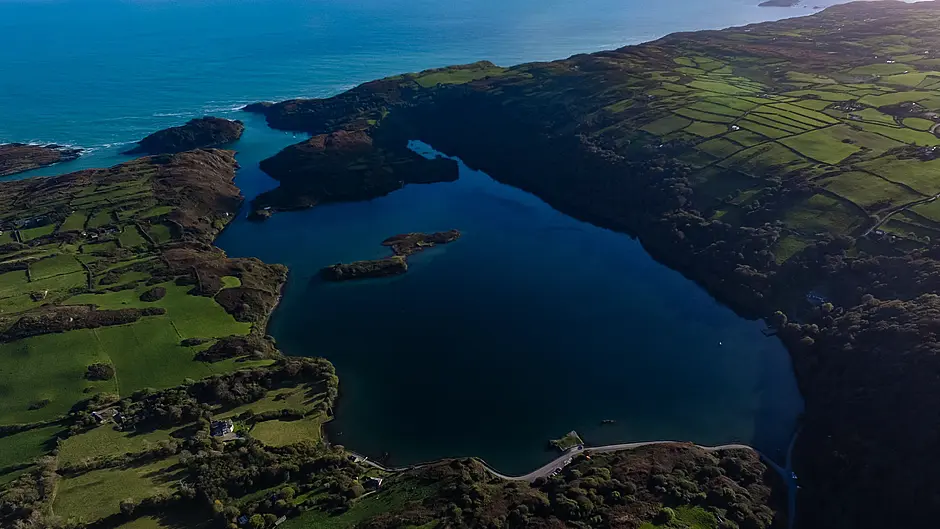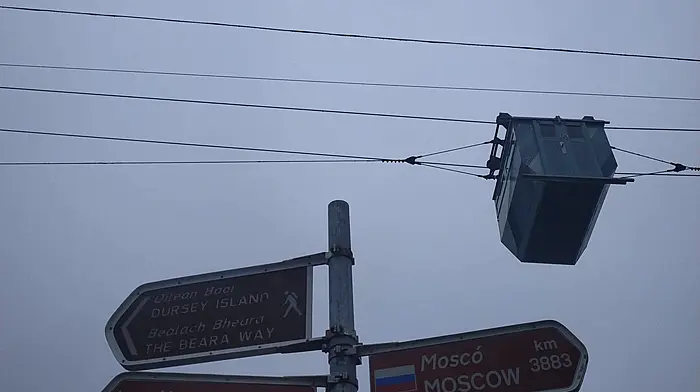BY DAVID FORSYTHE
A PROPER conservation plan needs to be put in place to save Lough Hyne from further decline before it’s too late, according to a science journalist and author who has written extensively on the marine reserve.
Dr Olive Heffernan has written articles for international science publications as part of a project funded by the Pulitzer Center in the US. She said that the more shallow sections of the lake show a drastic decrease in diversity, but proper management, including appointing a full-time warden, could save the lake.
Olive first heard about Lough Hyne as a student. ˙I was studying zoology at Trinity when I heard about Lough Hyne, Europe’s oldest marine reserve, and it just sounded like a magical, special place,’ says the Dublin native.
That was more than 20 years ago, but for Olive, the fascination with Lough Hyne has only grown with time. Olive comes from West Cork stock on her father’s side with her maternal grandfather being a native of Skibbereen. It was on a family excursion to West Cork to investigate her roots that Olive first dipped her toe in the lough’s salt waters, an experience that would lead to a life-long interest.
‘We were on a sort of genealogical trip to Skibbereen and we went swimming in Lough Hyne and I just kind of fell in love with the place,’ says Olive. But it has only been in more recent years that she has been able to spend more time in the area.
‘I went overseas for a number of years but when I came back we started coming down regularly on holidays, every year for the last nine years or so,’ she said. It’s on those regular trips over almost a decade that Olive began to notice distinct changes at Lough Hyne that stirred her professional interest.
Acutely aware of the lough’s scientific importance, Olive noticed increasing levels of algal growth during the summer and talking to UCC researchers, she became aware of the decline of biodiversity in the lake. In her professional life she writes about the marine environment and the impact of climate chang,e having recently published an acclaimed book on the subject: The High Seas: Ambition, Power and Greed on the Unclaimed Ocean.
After witnessing the changes in Lough Hyne almost in real time, in 2023 Olive applied to the Pulitzer Center in the US, a non-profit organisation that funds investigative journalism on global issues and her application was accepted. With the funding she was able to carry out in-depth research into what has been happening to the marine ecosystem, making many trips to the area and conducting multiple interviews.
The findings published in two comprehensive articles in Hakai Magazine and The Journal.ie do not make comfortable reading for those that care about Lough Hyne but Olive believes that the cause is far from lost.
‘Lough Hyne is affected by issues that are national and international, but it is not beyond repair,’ she says. According to Olive, the deeper parts of the lough are still home to an abundance of marine life but the shallower sections show a drastic decrease in diversity. She says that simple things could be done in the short term, like appointing a full-time warden, nets to prevent jelly fish invasion and introducing a proper management plan for the area.
In the long-term, though, she says that solutions will need to be found at national and international level. ‘It’s an incredibly important site but there are wider issues that affect the coast everywhere. The State needs to make the hard decisions,’ she said.
Olive conducted her research before the current invasion of ‘mauve’ jellyfish two weeks ago, which scientists fear could have a devastating effect on other marine life in the lough.










